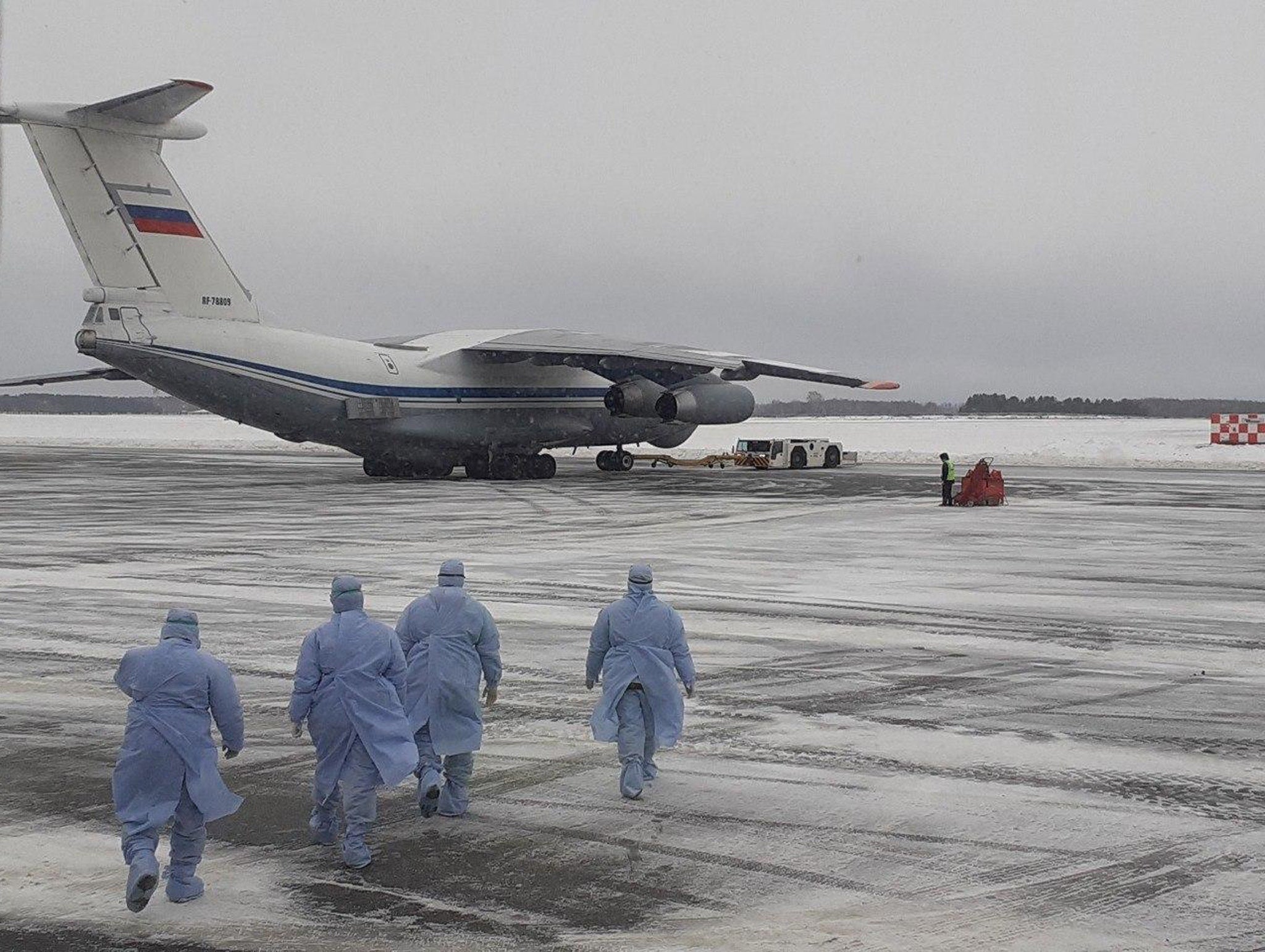Coronavirus: Anyone near germaphobic Putin ‘has temperature checked’ as 144 quarantined in Siberian sanatorium
With fitness built into his strongman image, Putin and his staff have traditionally been sensitive to matters of health.

Your support helps us to tell the story
From reproductive rights to climate change to Big Tech, The Independent is on the ground when the story is developing. Whether it's investigating the financials of Elon Musk's pro-Trump PAC or producing our latest documentary, 'The A Word', which shines a light on the American women fighting for reproductive rights, we know how important it is to parse out the facts from the messaging.
At such a critical moment in US history, we need reporters on the ground. Your donation allows us to keep sending journalists to speak to both sides of the story.
The Independent is trusted by Americans across the entire political spectrum. And unlike many other quality news outlets, we choose not to lock Americans out of our reporting and analysis with paywalls. We believe quality journalism should be available to everyone, paid for by those who can afford it.
Your support makes all the difference.Media access to Vladimir Putin is never straightforward, with his security detail usually forming several circles of protection as a matter of principle.
On Thursday, pool journalists were presented with another barrier: thermographic cameras. Now anyone coming into even moderately close contact with the president will be required to have their body temperature checked for signs of illness.
Kremlin spokesman Dmitry Peskov said the innovation was part of a “package of measures” taken out to control the spread of novel coronavirus.
Mr Putin and his staff have traditionally been sensitive to matters of health. Much of the presidential image is predicated on vitality and strength, and the margins are always tight.
In 2015, when Mr Putin disappeared from public view for 10 days, Mr Peskov explained that the president had succumbed to the flu. But the Russian internet went into meltdown. The lesson was learned.
Now Mr Putin takes few chances when it comes to germs. State TV documentaries have shown him denying meetings to ministers who arrived coughing. In November, he chided the entire cabinet after revealing only three of them had been vaccinated against the flu.
“Three people, or four if you count me,” he said. “Getting the flu is self harm. You could have prevented it, but you didn’t.”
The president has demanded an equally zero-tolerance approach from his government in handling the Russian response to coronavirus.
The risk to Russia is not insubstantial, with its 2,615 mile land border with China. But so far Moscow has only reported two confirmed cases, both involving Chinese citizens. And officials seem intent — to the point of panicking — to keep it that way.
On Wednesday, Russia began evacuating its nationals from Wuhan, sending two Ilyushin 76 military to the stricken city. Most of 144 people lifted out of China were were surprised to be flown to the Siberian oil city of Tyumen. They had been told they would be sent for quarantine near Moscow.
Some also complained of inhumane conditions aboard the plane, with freezing conditions, no blankets or working toilet.
“We flew for thirteen hours with an improvised toilet,” Victoria Makovtsova said in a post on social media. “An ordinary bucket, no flush, and being filled all the time. It was not a sight for the feint hearted.”
A convoy of police and military officers in plastic protection and gas masks met the special cargo at Tyumen airport.

After being sprayed with disinfectant, the passengers were whisked through Tyumen’s VIP terminal. They were then transported twenty miles to a far less luxurious destination: a sanatorium specialising infectious diseases including tuberculosis.
The new residents will now have to spend 14 days inside their rooms — defended from any unhealthy thoughts by high perimeter fences, and a company of armed, masked guards.
Join our commenting forum
Join thought-provoking conversations, follow other Independent readers and see their replies
0Comments